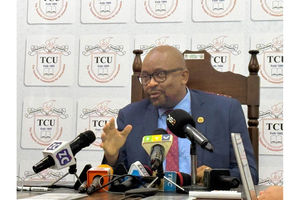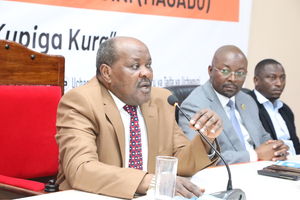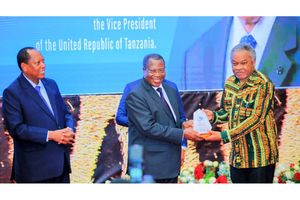Egypt’s Nasser: The failed vision of united Africa- P.1
What you need to know:
- Alongside Kwame Nkrumah and other forefathers of the pan-African movement, he helped pursue the independence cause of African countries.
Gamal Abdel Nasser Hussein was an Egyptian revolutionary, statesman and pan-African activist who served as the second President of Egypt from 1956 until 1970 when he died. Alongside Kwame Nkrumah and other forefathers of the pan-African movement, he helped pursue the independence cause of African countries.
As one of the first leaders of A the Organisation of African Unity (OAU), he also pushed for the unification of the continent.
Nasser placed Egyptian culture and civilisation within an African framework. To him, the Arab-African ties were key to rooting out colonialism in Africa. The story of Gamal Abdel Nasser is the story of an Arab leader who always lend a supporting hand to those Africans who were determined to throw off colonial oppression.
His story is that of solidarity between Arab and non-Arab Africans. Nasser and his African colleagues had in common a radical agenda of social change in the unity of Africa; a task they knew would not be easy, a mission that remains, to this day, unaccomplished. In a series of articles we tell the story of Gamal Abdel Nasser, one of the greatest pan-African.
Gamal Abdel Nasser was born on the 15th of January 1918 in Bakos, Alexandria. He obtained his primary education at Khatatba and Nahhasin primary schools in Alexandria from 1924 to 1932 and then completed his secondary education at the Al-Nahda al-Masria Secondary School in Cairo, earning a certificate in theatre arts in 1936. While at school, he read and wrote articles on freedom in the School Paper. He was also involved in political activism leading several student demonstration against British rule.
In late 1937, Nasser was enrolled in the Military Academy for military training after terminating his studies at the King Fuad University in Cairo where he was studying Law. In July 1938, he graduated from the academy and was commissioned Second Lieutenant in the Infantry Regiment at Mankabad Millitary Base. At the Base Nasser met his closest friends, Muhammad Anwar el-Sadat and Abdel Hakim Amer.
In 1949, Nasser and his revolutionary army friends, Anwar el-Sadat and Abdel Hakim Amer were convinced that Egypt needed liberation from the monarchic anarchy, and formed the Association of Free Officers (AFO). In 1952 the AFO overthrew the ruling party and Egypt became a Republic on the 18th June 1953 after abolishing the monarchy.
The Revolutionary Command Council (RCC) was then formed led by General Naguib as Chairman and First President of Egypt. Nasser was Vice-Chairman of the RCC and however, on the 25th February 1954, Naguib resigned and Nasser became the Chairman of the RCC and the Second President of Egypt. Nasser’s rule banned all political parties, creating a one-party system under the Liberation Rally.
As resentment grew against Nasser’s rule; on the 26th October 1954, an attempt to assassinate Nasser in Alexandria failed cementing his nationalistic belief as a liberator of Egypt and he addressed the people with great emotion saying: “…My countrymen, my blood spills for you and for Egypt. I will live for your sake and die for the sake of your freedom and honour. Let them kill me; it does not concern me so long as I have instilled pride, honor, and freedom in you. If Gamal Abdel Nasser should die, each of you shall be Gamal Abdel Nasser ... Gamal Abdel Nasser is of you and from you and he is willing to sacrifice his life for the nation…”
In 1956, Gamal Nasser now the strong leader of Egypt decided to return Egypt into civilian rule; he drafted a new Constitution to establish a single-party system under the National Union (NU) Movement envisaging to secure a socio-economic and political revolution in Egypt. Elections were held in July 1957 and a National Assembly was established. The Revolutionary Command Council (RCC) was then dissolved and he established a transitional Civilian Government under him as President.
Dr Kafumu is the Member of Parliament for Igunga Constituency



